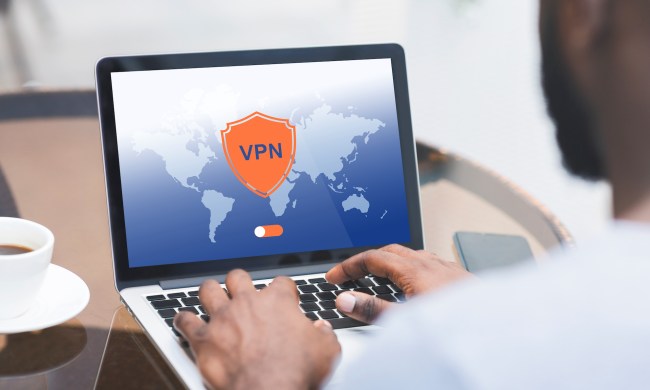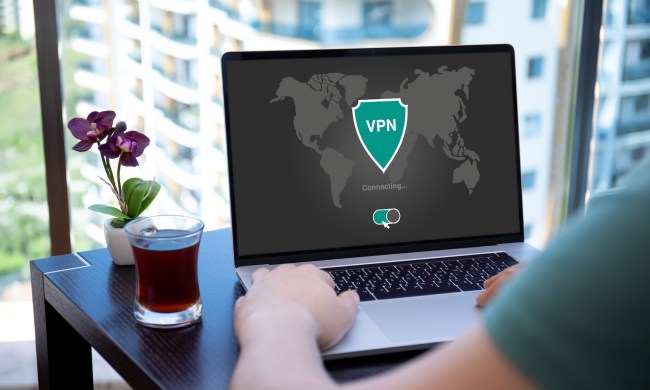A virtual private network, or VPN, is one of the easiest and most cost-effective ways to protect yourself from cybercriminals, data snoops, and other threats you’re likely to encounter online. One might say that a VPN is an essential tool for privacy-conscious individuals living in a digital age rife with surveillance and censorship, but the benefits of using a VPN also extend to things like bypassing region-based content restrictions. Virtual private networks aren’t all the same, however. Each one utilizes a different set of security protocols, features, and servers. Server selection is something that gets touted a lot, but there’s more to this than you might think. Here’s the scoop on one of our favorites, ExpressVPN
ExpressVPN ranks high among the best VPN services thanks to its great connection speeds (it’s one of the best VPNs for streaming), compatibility with pretty much all modern internet-connected devices, solid security protocols, and great features like split tunneling that lets you decide which of your online activities you want to route through your VPN and which you don’t. ExpressVPN also operates more than 3,000 servers operating in 160 locations across more than 90 countries around the world. This is nice to see, but it’s also worth examining a bit further so you can get a better understanding of how a VPN operates “under the hood.”
There’s more to a VPN than server selection

Most VPN providers boast of running large server networks and market this as a major selling point. Admittedly, this is not insignificant, as these servers are what you actually connect to when using the VPN (really you could say that these servers comprise the “network” part of any virtual private network). Having a nice range of geographical diversity with servers is also important because you’ll often want to choose a specific endpoint of your connection when using your VPN. More servers are therefore always better, right? Theoretically, yes, but in reality, it’s not always so clear.
First of all, there’s really no way to verify that virtual private networks actually have the number of servers they’re bragging about — when using the VPN client, all you’ll usually see is the locations you can connect to rather than a server count. Secondly, servers are not all the same. Physical server hardware is built to various specifications and tailored to certain tasks. A server for storing website data won’t be the same as one used to host an online game, for example. VPN servers aren’t exempt from this basic technological reality, and you can’t be sure what type of hardware a virtual private network service might actually be running.
The server hardware is going to be a bottleneck for connection speeds, which is important when using a VPN even for basic tasks (and vital for data-heavy activities such as video streaming, for which many people use a VPN in order to circumvent region-based content restrictions). Server hardware must therefore be optimized for use on a virtual private network, which means that the quality of servers matters a bit more than simply the quantity of servers. So long as the hardware is reliable, though, then having more servers certainly isn’t a bad thing, as it reduces congestion on the virtual private network to improve connection speeds.
Interestingly, the best servers for a virtual private network aren’t necessarily the newest. Older server hardware often boasts more CPU cores than newer ones, which is actually better for a VPN that will be used by many people at once and will therefore need servers capable of heavy multitasking. There’s also bandwidth to think about. How are those servers connected to the network and the internet more broadly, and what sort of data speeds are these connections capable of? A VPN provider that doesn’t have the network equipment and know-how to manage bandwidth properly can run more servers than you can shake a stick at, but the service will still be sub-par.
ExpressVPN server network overview
ExpressVPN’s server network is still pretty extensive, even if it isn’t the largest (which you should now understand is not the main selling point of any VPN service). With more than 3,000 servers in 94 countries, you’ve got a lot of geographic diversity to choose from — another thing that’s arguably more important than simple server count. ExpressVPN operates servers in North America, South America, Europe, Asia and the broader Pacific region, the Middle East, and Africa.
Just a few specific countries on the ExpressVPN network include the United States, Canada, Brazil, Mexico, France, Germany, Switzerland, the U.K., Australia, Japan, Hong Kong, South Korea, South Africa, and Israel. There are many, many more — far too many to list here — so be sure to take a look at the complete list of ExpressVPN server locations
Conclusion
ExpressVPN is no slouch in the speed department, to be sure — we wouldn’t have named it as one of the best Netflix VPN services if it was — and is a perfect example that proves that server quality, bandwidth management, geographic diversity, and optimized network hardware are more important than having a staggering number of nodes to brag about. ExpressVPN is able to deliver strong and fast connections thanks to its great network of 3,000-plus VPN-optimized servers spread across the globe. That’s still a great selection of servers, though; it’s just important to remember that this isn’t everything and ExpressVPN has a lot more to offer than a large network. Armed with this knowledge, you should be better equipped to find the best virtual private network for your needs, and in our opinion, you really can’t go wrong with ExpressVPN.


